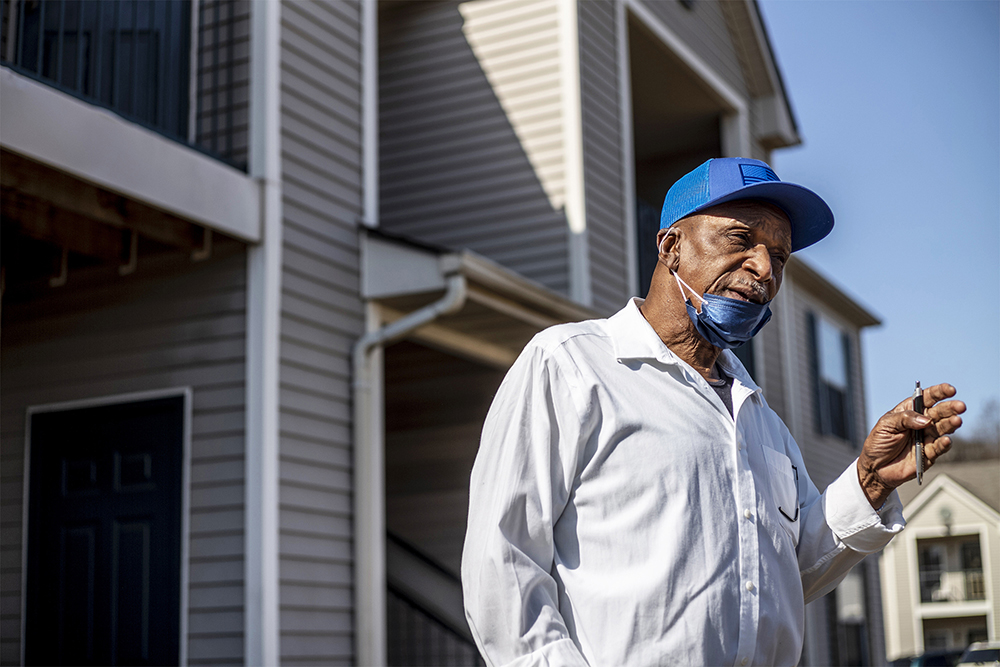
Released after nearly 40 years in prison, Lester Mason, 77, says life in prison during a pandemic is life-threatening. He was released in November, but skin is still peeling from his hands from using bleach to wipe down his cell during 24-7 pandemic lock downs. Mason was the first in Peoria County sentenced under three-strikes-and-you’re-out legislation, but none of his crimes alone would have merited natural life in prison. Gov. JB Pritzker granted his release. (PHOTO BY DAVID ZALAZNIK)

BY EMILY GILL
One congregate population, however, has been largely ignored. These are individuals in jails and prisons. Late in 2020, the American Medical Association stated that incarcerated people should be vaccinated before other healthy Americans. It noted that people in prison have a 5.5-fold greater risk of developing COVID-19 than other people, according to a study of state and federal prisons, where social distancing is often impossible. Jails and prisons are not isolated communities. Not only are people released from these facilities, but those who work there can contract the virus and spread it to those outside.
The New York Times reported Jan. 2 that so many guards had fallen ill in both local jails and in state prison systems around the country that in some places, the authorities were shutting them down and transferring inmates elsewhere — to facilities that then became even more crowded. Staffing shortages over many years had already led to greater concentrations of prisoners. According to a NYT database, there had been more than 480,000 confirmed coronavirus infections and at least 2,100 deaths among inmates and guards in prisons, jails, and detention centers nationwide. Although some states such as Mississippi have boasted of low virus rates in their prisons, often few individuals have been tested.
Apart from the practical benefits of early vaccinations, however, is the moral issue. Predictably, one governor said that there was no way that prisoners would receive vaccines before those who had committed no crimes. One individual scoffed at the idea that all he might have to do to get the vaccine was to commit a crime leading to incarceration.
We need to attend to this issue. First, individuals are innocent until proven guilty. People in jails awaiting trials, many of which have been delayed during the pandemic, have not even been convicted of a crime. Second, we hope that those who have been convicted and incarcerated received appropriate sentences. They did not, however, receive a sentence of serious illness and of a greater likelihood of death than the general population. And for those who would give no quarter to prisoners, we know that convicted individuals are sometimes later found innocent of their crimes.
The state of Oregon has the right idea. In early February, Gov. Kate Brown announced that the state would soon offer vaccinations to up to 11,000 inmates in the state’s 14 prisons, after a federal magistrate ordered inoculations in response to disproportionate rates of virus spread and death there.
Incarcerated individuals are human beings. They should not be defined by the worst things they have ever done. They should be treated like others in congregate settings — meaning they should receive vaccines now. As an inmate at Stateville Correctional Center in Illinois, grieving the death of his best friend and cellmate, said in January, “We are all more than our crimes. We are fathers, brothers, uncles, sons, cousins and friends. We matter to people as well.”
Emily Gill is Caterpillar Professor of Political Science Emerita, Bradley University.
